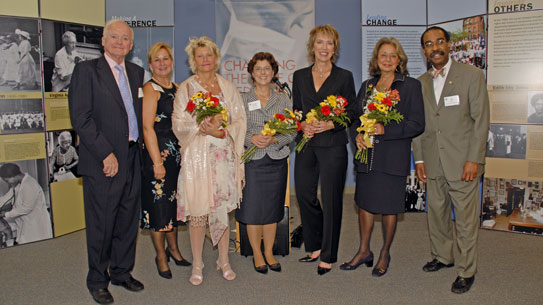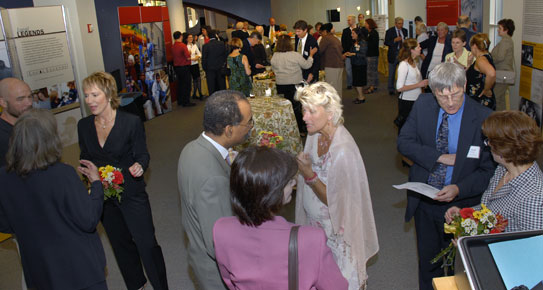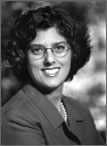Connective Issues is proud to include a new series focusing on some of the unique materials available for viewing in the Historical Collections department, located on the fifth floor of the HS/HSL. For more information, contact Rich Behles, the library’s Historical Librarian and author of our series, at 410.706.5048 or rbehles@hshsl.umaryland.edu.
The Lady With The Lamp
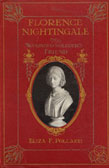
On a sunny morning in March 1854, the English navy set sail for the Black Sea. In an unprecedented alliance, it set off to join forces for the first time with Britain’s perennial enemy, France, against a Russia intent on destroying a world at peace. As the War in Crimea escalated and the tide of battle wreaked its vengeance on the allied soldiers, the military hospital at Scutari in the Bosporus region of Turkey rapidly filled with the sick, wounded, and dying, sent there to suffer under deplorable conditions. France dispatched her Sisters of Mercy to lend their nursing skills, and a young woman born in Florence to English parents organized and led the British delegation of thirty-eight nurses.
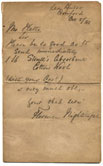
Florence Nightingale and her team arrived at Scutari on November 5, 1854, and immediately set to work improving the soldiers’ conditions. Dubbed "the lady with the lamp," Miss Nightingale introduced a new, tender solace into the fetid squalor of the hospital. At the same time, she aggressively reformed inefficient antiquated nursing methods into a practicable canon that elevated clinical care to a new standard. Out of this experience, and drawing on her observations of the many hospitals across Europe, Florence Nightingale singlehandedly authored the modern nursing profession.
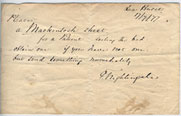
Nightingale’s Notes on Nursing, Notes on Hospitals, and Notes on Matters Affecting the Health, Efficiency, and Hospital Administration of the British Army are among the holdings of our Nursing Historical Collection.? Also of particular interest on our shelf is a set of notes handwritten by Florence during her later years at Lea Hurst, the Nightingale family residence in Derbyshire, England. Although given over to a life of confinement, she unceasingly maintained her religious devotion and continued to serve humankind through her writing.
Thanks to her prolific output during those later years, our Nursing Historical Collection enjoys some of Florence Nightingale’s most illuminating insights, still teaching and still serving after so many years.


